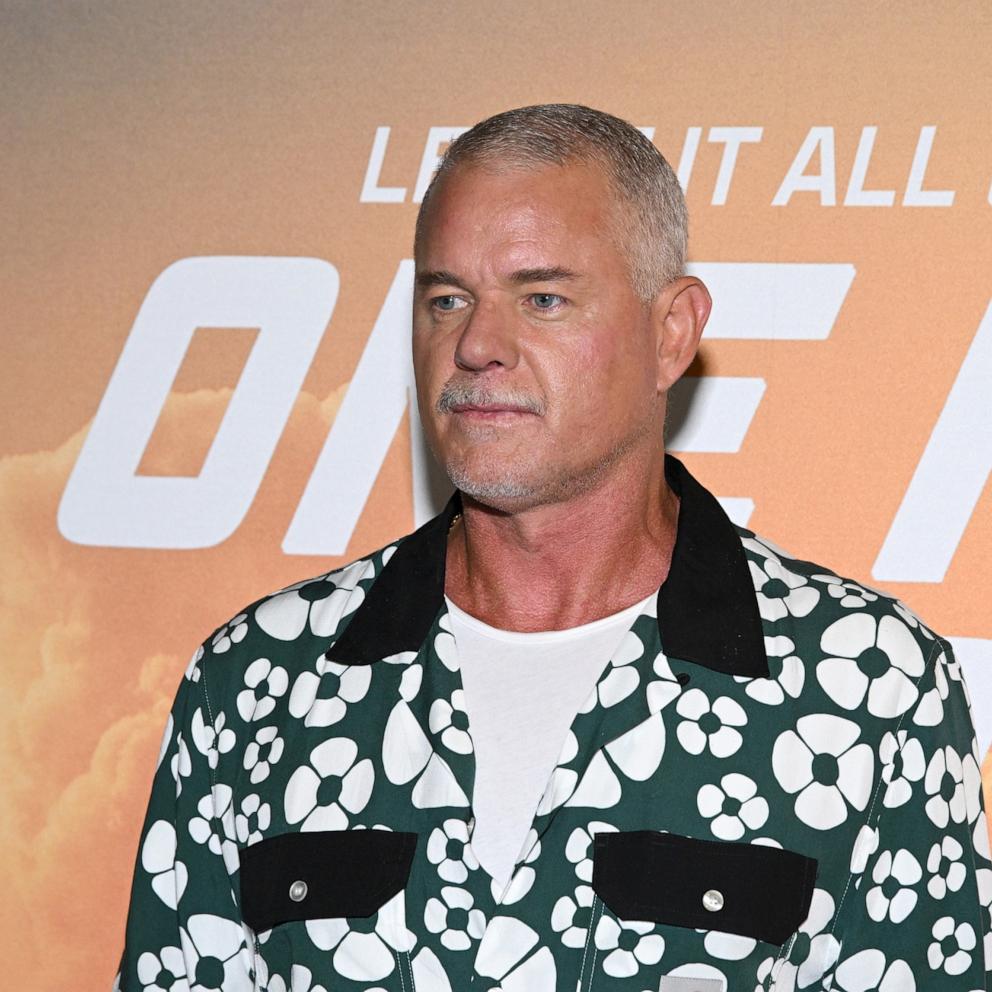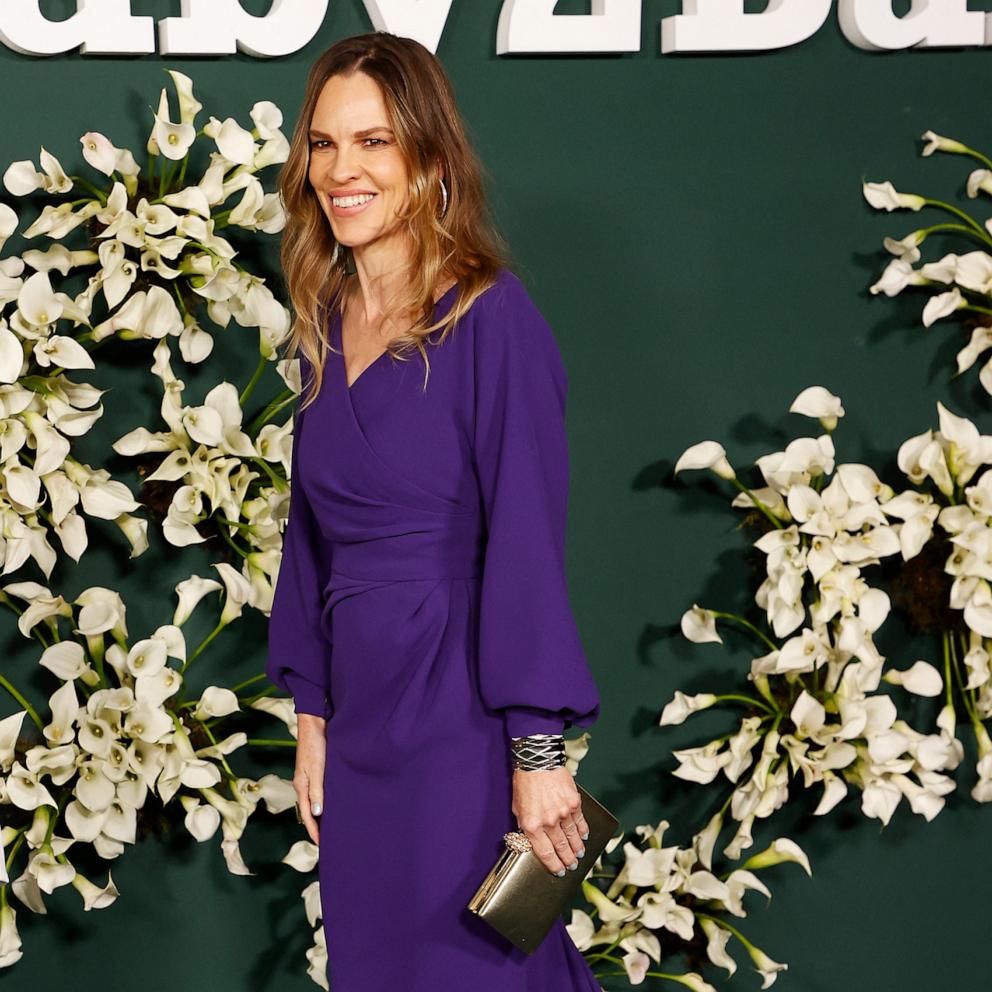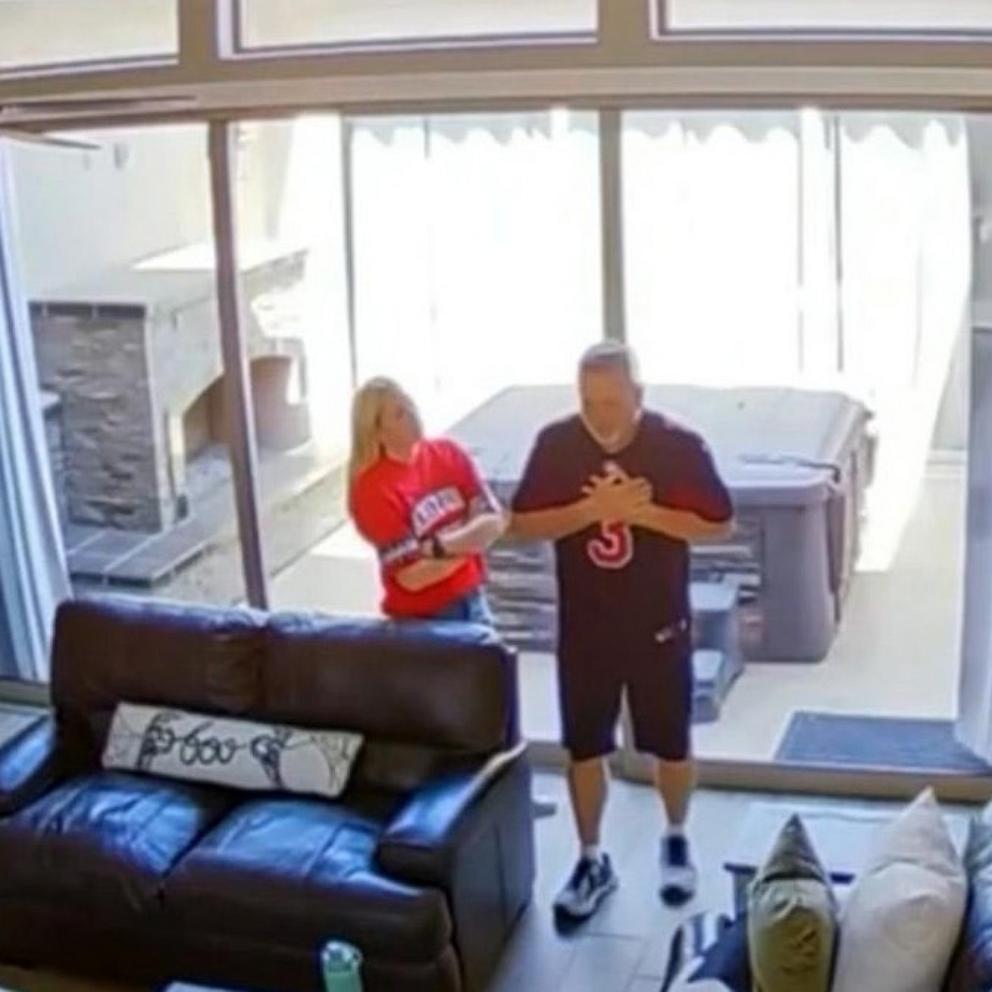'No man's land': Long COVID knocks young workers out of the job market
Less than a month after Victoria Waldo recovered from COVID, she woke up feeling drunk.
Dizzy and slurring her speech, she went to the emergency room only to be sent home after routine blood work turned up negative.
The newly engaged 26-year-old, who worked long days in finance at a start-up and taught skiing on the weekends, would spend the next several months in a haze on her couch in her Washington, D.C., apartment.
Unable to focus, she lost her job. At one point, she stumbled upon a pair of slippers she liked and asked her fiancé who they belonged to. They were hers, he said, a Christmas gift from his sister.
ABC's "Start Here" on Labor Day focuses on how "long COVID" is having a widespread impact on the American workforce
Another time, she forgot what her wedding planner looked like and introduced herself to the woman as if the two had never met.
"I had no idea what was going on. Nobody diagnosed me with anything. Everyone said I was fine based on my labs. Someone asked me if I was on my period," she said.

Now, at an age when many young professionals consider financing a home, traveling or starting a family, Waldo is weighing her options. Her employer didn't offer disability insurance with her job -- a benefit she didn't think she'd need as a healthy twenty-something. So she's waiting to see if her condition improves with time -- and burning through her cash savings in the meantime.
"I think in a parallel universe where none of this happened, we would be doing that now," she said of house hunting. But "instead, I'm kind of like, 'Oh, I want to see if we can get away with this cheap rent again."
'A mass disabling event'
More than two years after COVID began, millions of survivors say they still don't feel right. Brain fog, difficulty breathing, and intense fatigue are among the symptoms they say are still lingering in their bodies -- upending their ability to work and derailing their financial independence.
The government estimates as many as 7 million to 23 million people are impacted by long COVID, and a Census Bureau survey suggests that among people who have been infected, one in five still experience lingering symptoms.
Vaccination is expected to significantly reduce a person's chance of developing long COVID. That immunity though wanes with time and doctors say some people -- like Waldo who was fully vaccinated but days away from a booster shot when she caught the virus -- can still be young and healthy when they get sick.
Advocates have called this phenomenon a kind of "mass disabling event" that both insurers and the federal government have yet to reckon with. Data on disability claims with private insurers tied to long COVID aren't publicly available. And while disability claims with the federal government's Social Security program currently remain flat for now, at least one economist says that might not last for long.
"This is a $3.5 trillion problem," said David Cutler, a professor of economics at Harvard University, whose calculations factor in lost earnings, medical care and lower quality of life.
"And there are very few 3.5 trillion problems that we know as little as we know about this," he said.

'This is not in their heads'
Doctors and scientists have long suspected that viral infections might be to blame for other chronic or debilitating diseases and conditions with mysterious origins, including multiple sclerosis, rheumatoid arthritis and chronic fatigue syndrome.
Then came COVID, triggering a wave of 93 million viral infections in the U.S. in just two years. Hospitals quickly began to see patients like Waldo show up at emergency rooms and doctors' offices with symptoms they couldn't explain.
Dr. Alba Azola, who helps run the post-acute COVID team at The Johns Hopkins Hospital in Baltimore, Maryland, said she might consult with a half a dozen other specialists or more to rule out other causes before diagnosing someone with long COVID. After that, she said, her team will have to go back-and-forth several times with insurers and employers to help their patients secure job accommodations.
"This is not in their heads," Azola said of her patients. "This is not something that is just to get out work or a disability scam. These patients just want to be themselves again."

One of Azola's patients, Jazmin Holcombe, is among the luckier ones when it comes to her work life. After four months in the hospital with COVID, the 29-year-old was able to return to her job working from her home office in marketing. She hadn't been vaccinated when she contracted the virus last year because, she said, she had been nervous about a new vaccine and she mostly stayed at home.
But she's still far from her old self. Now, rather than planning trips or going to concerts like she used to, Jazmin spends much of her time doing physical therapy at the hospital, carrying with her an oxygen tank wherever she goes. She said her doctors hope to have a better idea by the end of the year what her prognosis will be.
"No one knows yet," she said.
'No man's land'
That uncertainty in the lives of young long haulers and its impact on the economy has caught the attention of senior government officials and scientists.
The National Institutes of Health has launched a $1.5 billion study to identify the causes and find treatments for long COVID. And, the Biden administration has added long COVID as a condition that qualifies as a disability under the American Disability Act -- a move that requires employers to grant work accommodations.
Also, the Labor Department has teamed up with the Centers for Disease Control and Prevention and Surgeon General's office to crowdsource ideas from the public on "workplace challenges" tied to long COVID.
Taryn Williams, assistant secretary of labor for disability employment policy, said she hopes to have an analysis of that effort in coming months. In the meantime, she said, people can go to www.covid.gov/longcovid to see what benefits they might be eligible for. They also can get free counseling through the Job Accommodation Network at askjan.org, she said.
"We do not know yet the full extent of the impact of long COVID on the economy or the workforce. But we do know that public health and safety are critical to a healthy economy, which is why we are so focused on this," Williams said.
For now though, employer accommodations can still be scarce, especially without legal help.
Mark DeBofsky, a disability attorney and law professor at the University of Illinois-Chicago John Marshall Law School, said people should know that many lawyers -- including himself -- won't bill their clients until they win a case. He said he advises his clients to save any medical documentation they have and collect statements from family members about how they might have changed.
Keeping detailed journals of their symptoms can be a good idea too, he said.
"I think it's still a mixed bag," DeBofsky said about insurance companies and employers responding to long COVID patients.
"Every disability claim is very complex, and I don't begrudge the insurance companies for really doing their due diligence," he added.

But even people who keep detailed records can get rejected, like Frantz Dickerson, a 55-year-old sales executive who worked during the pandemic for a company that sold and fixed elevators. Dickerson's job was to drive into Philadelphia where he would stand on rooftops or climb into the elevator shafts of high-rise buildings and hospitals to ensure safety and order fixes.
After being diagnosed with long COVID -- a mental state he describes as feeling as though his brain went from a 10-lane highway down to two lanes -- his doctors suggested he take time off to rebuild his cognitive and physical abilities.
But according to his employer's disability insurer, Dickerson could still work in sales. That's because the insurer defined a sales job as mostly sitting at a desk, even if that wasn't an accurate description of what he did. His former employer did not respond to requests for comment, and his insurer said it won't discuss individual cases due to privacy concerns.
"I was kind of in this no man's land," Dickerson said of his rejection. "Insurance says that I'm not disabled, but my work says, 'no, you can't come back until your doctor fully releases you.' And my doctors were not fully releasing me because they understood long COVID."

Dr. Benjamin Abramoff, who treated Dickerson as head of PennMedicine's post-COVID care clinic and confirmed the details in his case, said he oftentimes will spend hours filling out paperwork for patients. Abramoff said he knows of other doctors and clinics that have pulled back from the specialty because they don't have the staff or resources to do it.
Abramoff said he wants more data on effective treatments and is watching ongoing studies closely. But he also would like to see insurers agree to use the same standardized forms.
"It is a big administrative burden," he said. Insurers "send in the forms and the forms get rejected for technicalities (such as) a box that wasn't filled out quite right. And then it has to come back to be filled out again or edited."
Dickerson eventually switched sales jobs to one that's fully remote. After several months of therapy, he says he's doing better now that he's learned how to pace himself and take breaks if he needs it, including playing his guitar -- something he was encouraged to do by his doctor.
As for Waldo, she eventually landed an official diagnosis of long COVID: "Post COVID-19 Condition ICD10 code U09.9" -- a medical code that didn't exist until about a year ago. And getting that diagnosis and treatment from her doctors and her treatment team at George Washington Center for Integrated Medicine put her on the road to recovery.
She went on to the Amen Clinic in New York where doctors perform head and neck adjustments to help her neurological symptoms, and that she said has helped her condition improve.
But she's close to draining her once-impressive cash savings of $70,000 to pay for medical treatments and living expenses – money she had hoped to use to buy a house someday and maybe travel.
In the meantime, she's still planning to get married next year. But everything else, including starting a family, is on hold for now.
"I just don't know what my body can handle," she said.
Editor’s note: Updated to include where Waldo received treatment.
ABC News producers Vika Aronson, Kelly Terez, Iru Ekpunobi and Cate Barbera contributed to this report.




